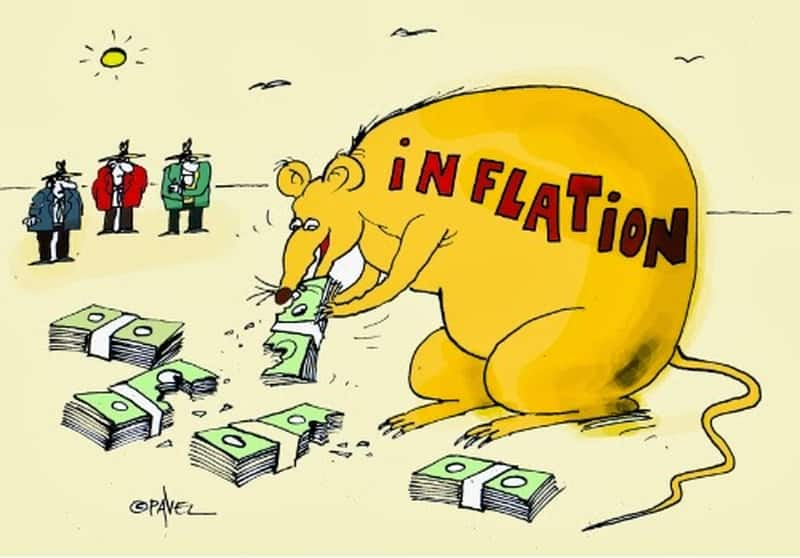



These simple words, uttered in a garden party at Westminster Abbey (London) left a deeply perplexing impact on David Graeber, a professor of anthropology at the LSE, who then wrote a 500 page long book on how debt repayment of countries is a moral dilemma and not an economic one.
Debt has been around us since time immemorial, and has both built and brought down the societies, Lebanon being its latest victim. Today, most countries around the world have been thriving on a system run by creditors and debtors, both domestically and internationally. What is it about this debt system that makes some nations prosperous while leaving some other high and dry? Before delving any further into what’s happening in these economies, let’s discuss the basic tenets of the need to borrow at the national level.
With economic growth and development at the focus, national governments across the globe spend money on policies that create infrastructure, promote education, support health care systems, etc. One of the main sources of government revenue is via tax collection. However, when the government expenditure exceeds the available funds, it needs to look for other sources of funding. When this occurs through borrowing from other countries, investors, corporations, or the country’s own citizens, this borrowing is known as Sovereign Debt.
Listen | Setting Sail: The question is not if, but when will India become a $10 trillion economyThere is a limit to how much tax countries can collect from its citizens. On the other hand, imagine a country with a 100% tax rate. This implies that all the income earned is handed back to the government as taxes. This situation is likely to result in very little economic activity that too, illegally or informally. It may be a good bet to assume that this country would have faced significant brain drain as the more productive citizens and corporations relocate to foreign countries with better business conditions. This is an extreme case that essentially points out that the government cannot tax too much. Beyond a certain rate, the tax revenue will start to decrease as the economy will slow down and inefficiencies may creep in.
While money creation seems like an excellent shortcut, it comes with several disclaimers. In some cases, an independent monetary authority/central bank may disagree with the excessive printing of the domestic currency. This is because too much currency creation can result in high levels of inflation in the economy which is generally considered undesirable.
 Photo of Milton Friedman, Credit: Tom Palley
Photo of Milton Friedman, Credit: Tom PalleyThus, inflation decreases the value of the currency in terms of the purchasing power of a consumer. When the inflation is high, a consumer can buy fewer goods with the same amount of money. This decrease in the purchasing power causes the local currency to lose value against foreign currencies in the foreign exchange market as people start demanding less of it. That is, you would have to now pay more units of the local currency to get one unit of the foreign currency, also called depreciation of the local currency, which may or may not be desirable.
But why can’t a country repay its debt by printing money? Typically, countries that have debt denominated in their own currency could, in principle, print the currency to repay the debt. Our discussion in the beginning would, however, imply that this would result in inflation. When this becomes hyperinflation, there is almost nothing favourable about the situation, however, a little inflation can actually aid in reducing the real value of the debt - popularly known as inflating away the debt. A higher amount of currency in circulation essentially erodes the purchasing power of each note, thereby implying a fall in the real value of the local currency denominated debt.

Not all countries possess the authority to inflate away their debt. For instance, when Greece was confronted with high quantities of debt in 2010, it was unable to do so because Greece was part of a currency zone, the Eurozone, and therefore could not print more euros to inflate it away.
This gets even more onerous, when countries like Lebanon, which have borrowed in foreign currency, mainly US Dollars, owe large sums of money to the creditors in a currency over which they have no printing authority.
Given the challenges with money creation and tax increases, countries may find it convenient to borrow by issuing government bonds. This can be done in the domestic as well as foreign currencies. If a country has substantial imports that they need to pay for in foreign currencies, they would require sufficient foreign reserves to do so. However, if the foreign reserves are not sufficient to sustain its imports or fulfil foreign contractual obligations, the country may find it convenient to bridge the gap by borrowing in US dollars, pounds or euros, the globally popular currencies used for maintaining reserves. Moreover, based on the country's track record in repaying debt, its current economic situation and political stability, foreign investors have preferences on the currency in which they will lend money.
In addition to the currency denomination of the debt, it is relevant to identify whether the capital is coming from the international or domestic capital market. Debt issued to foreign investors, foreign corporations or foreign central banks is generally termed as external debt, in contrast to internal or domestic debt, which is issued to the lenders within the country.
 “Original Sin”, Creator: Hans van de Pol, Copyright: Pol Fotografie.
“Original Sin”, Creator: Hans van de Pol, Copyright: Pol Fotografie.In some extreme cases, due to a dearth of confidence in the local currency because of weak economic or political fundamentals, a country might be unable to borrow funds in the local currency abroad. In prominent economic literature, economists have dubbed this as the “original sin”. Historically, when a country has large quantities of debt, high inflation, a fixed exchange rate or slow economic growth, there is a higher chance of it engaging in the original sin. And it has often been seen that countries with original sin have a higher probability of facing currency mismatches and losing the ability to repay. An economy which is unable to repay this sovereign debt (domestic and external) is said to be facing a debt crisis and if the country misses a payment, it is said to be in a sovereign default.
To read more on how debt can impact the global economy and cause debt crises and sovereign defaults, keep an eye out for the next Policy Square blog post.
This article was originally published in PolicySquare.Discover the latest Business News, Sensex, and Nifty updates. Obtain Personal Finance insights, tax queries, and expert opinions on Moneycontrol or download the Moneycontrol App to stay updated!
Find the best of Al News in one place, specially curated for you every weekend.
Stay on top of the latest tech trends and biggest startup news.